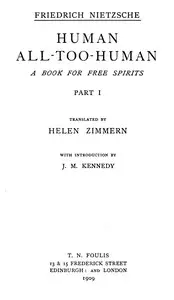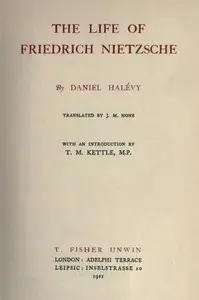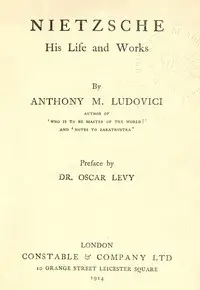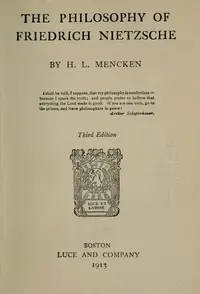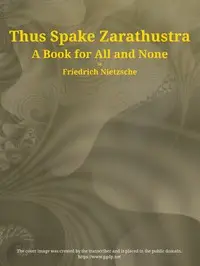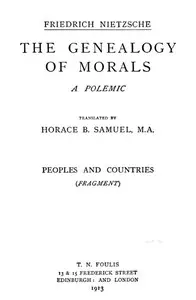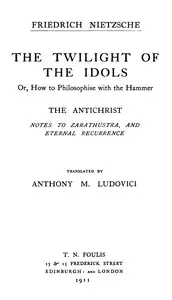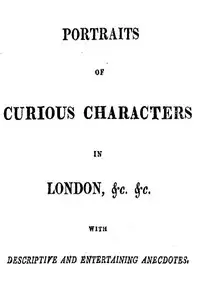"Ecce Homo" by Friedrich Wilhelm Nietzsche is a deep look into the author's life and thoughts, written as he gears up to challenge the ideas of his time. Nietzsche uses themed chapters to explore who he is as a person and a thinker, aiming to change how people value things in a world stuck on old beliefs. Right away, readers meet Nietzsche's unique style, mixing confidence with honesty, as he tells his story. He talks about his take on life, what it means to suffer, and how his health and experiences shaped his thinking. Nietzsche admits that his identity is complicated, formed by being sick, being alone, and his family history but argues that seeing life from good and bad angles is where his smarts come from; brave and bold, he challenges normal morals while defending the importance of his philosophical work.
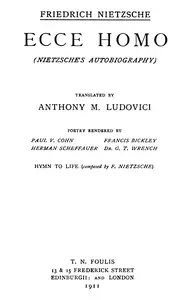
Ecce Homo Complete Works, Volume Seventeen
By Friedrich Wilhelm Nietzsche
Before the shadows consume him, a philosopher unveils his soul, daring the world to understand the brilliance forged in the fires of illness and isolation.
Summary
About the AuthorFriedrich Wilhelm Nietzsche was a German classical scholar, philosopher, and critic of culture, who became one of the most influential of all modern thinkers. He began his career as a classical philologist before turning to philosophy. He became the youngest person to hold the Chair of Classical Philology at the University of Basel in Switzerland in 1869, at the age of 24, but resigned in 1879 due to health problems that plagued him most of his life; he completed much of his core writing in the following decade. In 1889, at age 44, he suffered a collapse and afterward a complete loss of his mental faculties, with paralysis and probably vascular dementia. He lived his remaining years in the care of his mother until her death in 1897, and then with his sister Elisabeth Förster-Nietzsche. Nietzsche died in 1900, after experiencing pneumonia and multiple strokes.
Friedrich Wilhelm Nietzsche was a German classical scholar, philosopher, and critic of culture, who became one of the most influential of all modern thinkers. He began his career as a classical philologist before turning to philosophy. He became the youngest person to hold the Chair of Classical Philology at the University of Basel in Switzerland in 1869, at the age of 24, but resigned in 1879 due to health problems that plagued him most of his life; he completed much of his core writing in the following decade. In 1889, at age 44, he suffered a collapse and afterward a complete loss of his mental faculties, with paralysis and probably vascular dementia. He lived his remaining years in the care of his mother until her death in 1897, and then with his sister Elisabeth Förster-Nietzsche. Nietzsche died in 1900, after experiencing pneumonia and multiple strokes.

